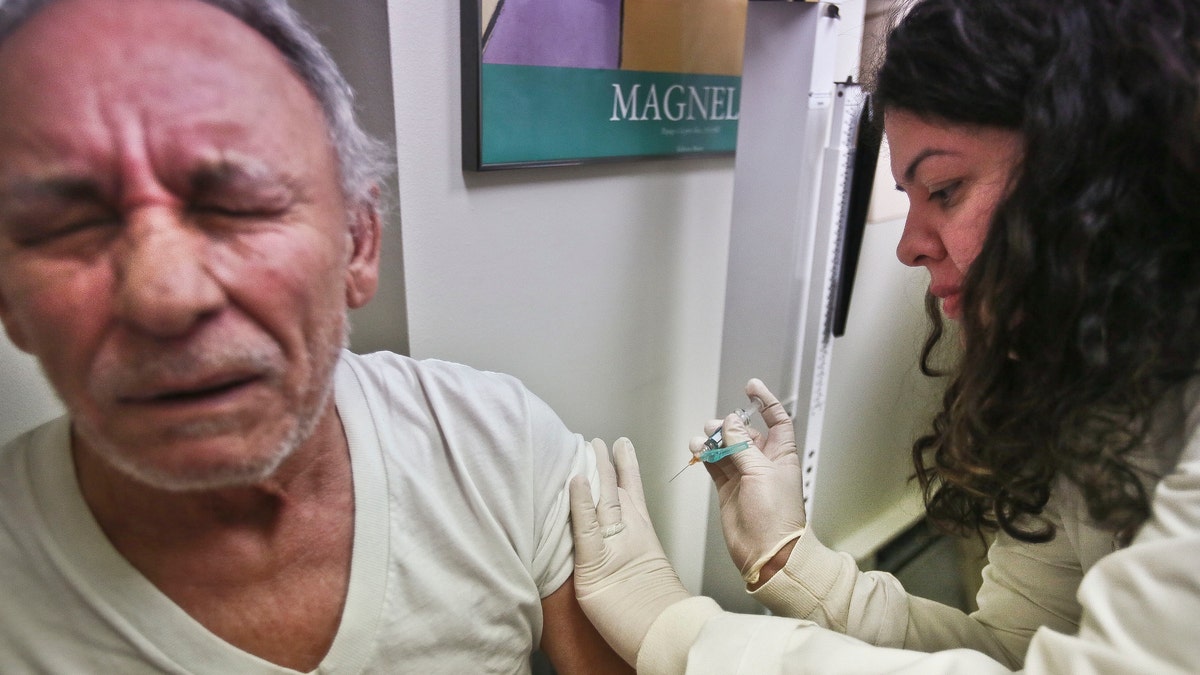
FILE -Carlos Maisonet, 73, reacts as Dr. Eva Berrios-Colon, a professor at Touro College of Pharmacy, injects him with flu vaccine during a visit to the faculty practice center at Brooklyn Hospital in New York. (A2013)
A government program that pays people hurt by vaccinations recently doled out more than $1 million to Latasha George, a Louisiana nurse. Katherine Brooks, an Indiana emergency-room doctor, received $92,500. Roberta Livolsi, a retired Pennsylvania housekeeper, got $75,000.
All were deemed victims of the flu shot—but their injuries had nothing to do with what was in the syringe.
The patients were among dozens that have been diagnosed with “Sirva,” or shoulder injury related to vaccine administration. They were hurt by how the shot was given, not the contents of the vaccine. It is a growing phenomenon for which U.S. health officials increasingly have been awarding compensation and is now being added to a no-fault system intended to expedite claims.
“Several years ago, we noticed that cases stood out in which injuries were occurring not from a vaccine but from being administered in an improper way,” says Sarah Atanasoff, medical officer at the Division of Injury Compensation of the Health Resources and Services Administration, or HRSA, part of the Department of Health and Human Services.
Since 2011, the government has paid about $18 million to 112 Sirva victims—more than half of those in the past year. Twenty cases are pending, and dozens are fielded by lawyers every month, a rise attributed to the growing number of immunizations and increased awareness of Sirva in part due to attorneys devoted to vaccine-related claims.
The money comes from a trust set up in 1988 under a program to shield vaccine manufacturers from liability. It is funded by a small surcharge on vaccines. Since 1988, some $3.2 billion has been paid for a range of injuries related to vaccinations, including arthritis, encephalitis, polio and even death, according to HRSA. The government says victims compensated represent just one of every one million inoculations.
Claims against vaccine manufacturers cannot normally be filed in state or federal civil courts, but are instead heard by the U.S. Court of Federal Claims Office of Special Masters, which has no jury. This way, the government says, drug companies won’t be dissuaded from making vaccines and people won’t be dissuaded from receiving them.
